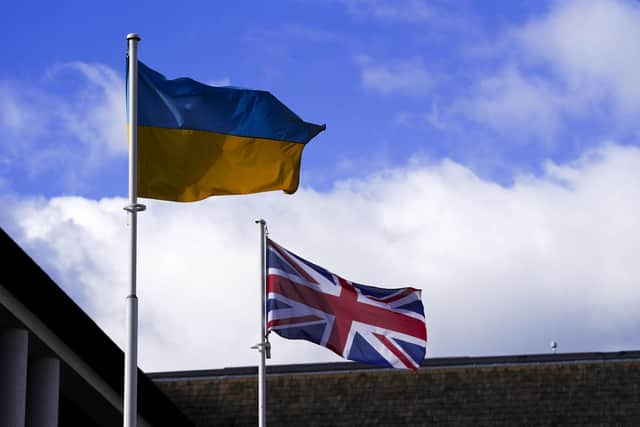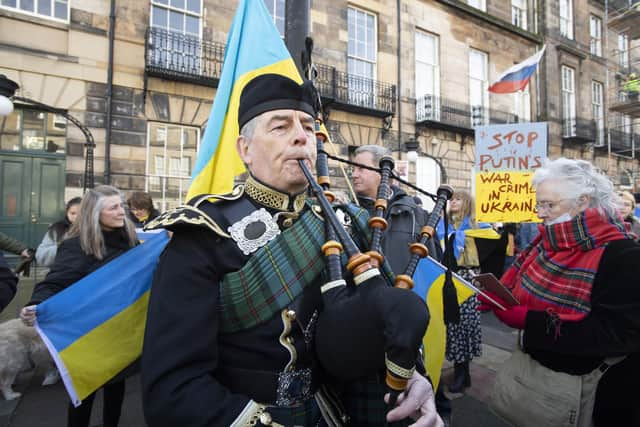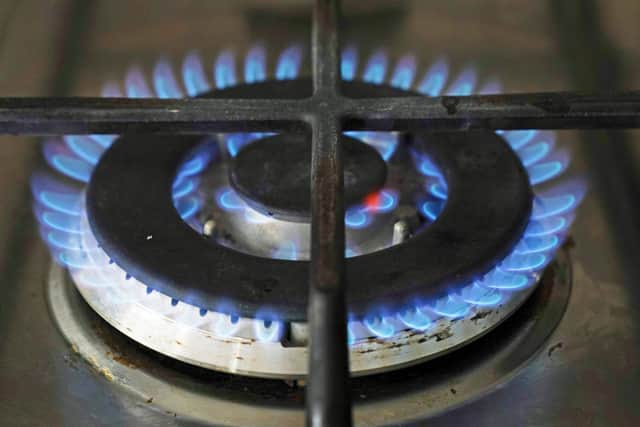War in Ukraine will mean price rises, here's what you can do to avoid them - Sarah Coles
But in an interconnected world, we’re closer than we think, and in the financial world, events in Ukraine are going to have a direct impact on our own lives and finances.
The markets have already reacted to events unfolding in Ukraine, and we’ve seen a spike in the oil price.
Advertisement
Hide AdAdvertisement
Hide AdRussia is the world’s second largest exporter of oil, and military action raises the risk of disrupting those supplies. At the time of writing, oil prices were are edging closer to $100 a barrel, and they could well go higher.


We have seen petrol and diesel hit record highs, with petrol hitting £1.49 last weekend. The RAC is predicting that Russia sending tanks over the border is highly likely to push it past £1.50.
As I mentioned last week, the UK Government is unlikely to relieve the pressure by cutting hefty fuel duties, or tinkering with VAT, so it means we need to take steps to reduce car use, or cut our petrol consumption through things like routine maintenance and more efficient driving techniques.
It’s not just oil either, we’ve also seen gas prices rise. One of the first sanctions against Russia, announced by Germany, was the decision not to bring a new gas pipeline from Russia onstream.


Advertisement
Hide AdAdvertisement
Hide AdNord Stream 2 would have doubled capacity for piping gas from the region to Germany, but Olaf Scholtz has refused to certify its use. Russia responded that it would mean gas prices doubling – the gas market reacted instantly, with UK prices rising 8 per cent.
The UK gets far less gas from Russia than elsewhere in Europe – at around 3 per cent.
But while this means less threat of shortages, it’s not going to protect the UK from sky-high prices on the international markets.
We’re particularly dependent on gas, because around 85 per cent of homes have gas central heating. We also burn gas to make around a third of our electricity, so those prices will rise too.


Advertisement
Hide AdAdvertisement
Hide AdWe’re already facing eye-watering price increases in April, when the energy price cap rises 54 per cent – or almost £700 a year – and this is before the most recent wholesale costs have been factored in.
If conflict pushes gas prices higher, it could mean more price hikes are on the way when the price cap changes again in October. Ofgem is currently consulting on possible changes to the way the price cap operates after this point.
Among the options are switching to review the price cap every three months, or sticking with six months but allowing more regular reviews in exceptional circumstances. It means we could get a rise in October, and then another one soon afterwards.
The price cap hike in April means most of us are already thinking about energy efficiency. For those with the available cash and access to tradespeople, now could be the time to consider outlays like double glazing and insulation.
Advertisement
Hide AdAdvertisement
Hide AdOtherwise, there are still steps you can take – like turning the thermostat down by one degree, switching radiators off in rooms that aren’t used regularly or installing DIY draught- proofing.
It’s also important to investigate the help you may be entitled to. Check whether your supplier’s warm home discount is still open for applications, and whether you qualify.
You should also check whether you qualify for a grant from your provider or your local council – both of which have specific support schemes for people who are struggling.
The rise in oil and energy prices also have a knock-on effect on anything that needs to be manufactured or distributed, which will feed into food prices.
Advertisement
Hide AdAdvertisement
Hide AdThese are already set to rise if military action affects food exports. Russia and Ukraine make up 29 per cent of global wheat exports, 80 per cent of sunflower oil, and 19 per cent of corn.
The UK isn’t among its main markets, but our food prices will rise if fewer exports hit global prices.
Supermarket prices are already rising at their fastest pace in a decade, and the price rises of essentials like pasta, eggs and milk are rising even more quickly.
For anyone who hasn’t yet cut back on the cost of groceries, there are all sorts of savings to be made by trading down from branded items to supermarket own-brands, or from own brands to budget ranges.
Advertisement
Hide AdAdvertisement
Hide AdIt’s also well worth trying the discount supermarkets, which still offer significant savings. For those who have already traded down, it’s far harder to cut costs, because you can’t live without the essentials.
We’re already struggling with the worse cost of living crisis in a generation, and military and political tensions between Russia and Ukraine are going to pile even more pressure on all of us.
In some ways, violence and threats 1,000 miles away have never felt so close to home.